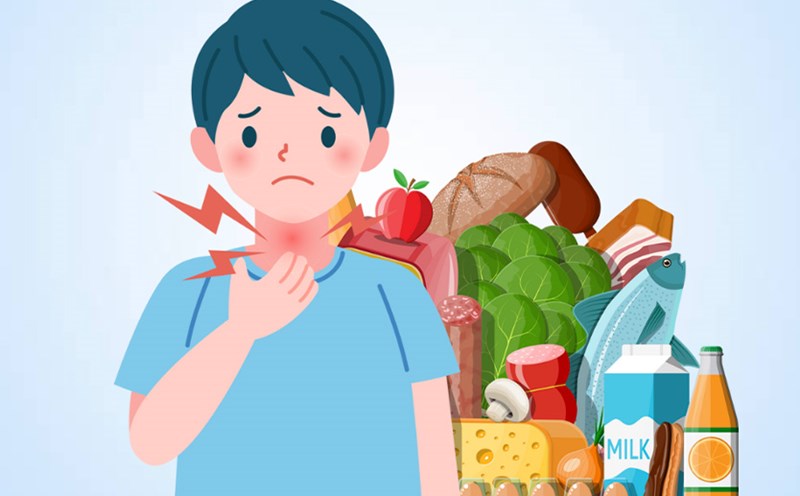1. Mouth breathing habits
When the air passes through your nose, your airways are naturally moisturized. But if you breathe through your mouth (commonly when you have nasal congestion due to colds, allergies, tonsillitis or refractive errors), the air flowing in is direct, causing your mouth to quickly dry.
2. Snoring and sleep apnea
Snorers often breathe through their mouths, causing air to go straight into their throats, causing dehydration and dry throat at night. With sleep apnea syndrome, the upper respiratory tract is blocked, forcing the patient to switch to oral breathing. In addition to dry throat, this condition is accompanied by prolonged snoring, sleep apnea, grinding of teeth or night sweats.
3. Allergies
seasonal allergies often cause people to sneak, stuff their noses, and have to breathe through their mouths while sleeping. In addition, the anti- histamine used to reduce allergies also dries mucus, making the mouth and throat more prone to dryness.
4. Dehydration
Dehydration can appear from drinking alcohol, coffee, vomiting, diarrhea or sweating a lot when working in the sun. When the body is dehydrated more than it takes in, dry throat and fatigue will appear.
5. Drugs
Some drug groups such as diuretic, blood pressure medicine, inflammatory drugs, heart failure, anti-depressants or anti- histamine drugs for allergy treatment can cause a feeling of thirst and dry the mouth at night.
6. Gastroesophageal reflux disease (GERD)
In people with GERD, stomach acid flows back up into the esophagus, causing dry mouth, dry throat and a feeling of entanglement and discomfort. Because reflux symptoms easily get worse when lying down, dry mouth at night or after waking up is very common in people with this disease.
7. Sjögren syndrome
This is an autoimmune disease that causes the immune system to attack the production lines of saliva and tears. In addition to dry mouth, patients may also have dry nose, eye irritation or difficulty swallowing. People with Sjögren often have to wake up many times at night to drink water because of a prolonged feeling of dry throat.
8. Diabetes
Diabetes can reduce saliva secretion due to many reasons such as frequent urination causing dehydration, or inflammation and irritation problems in the mouth. Therefore, dry mouth is a fairly common symptom in people with this disease.











